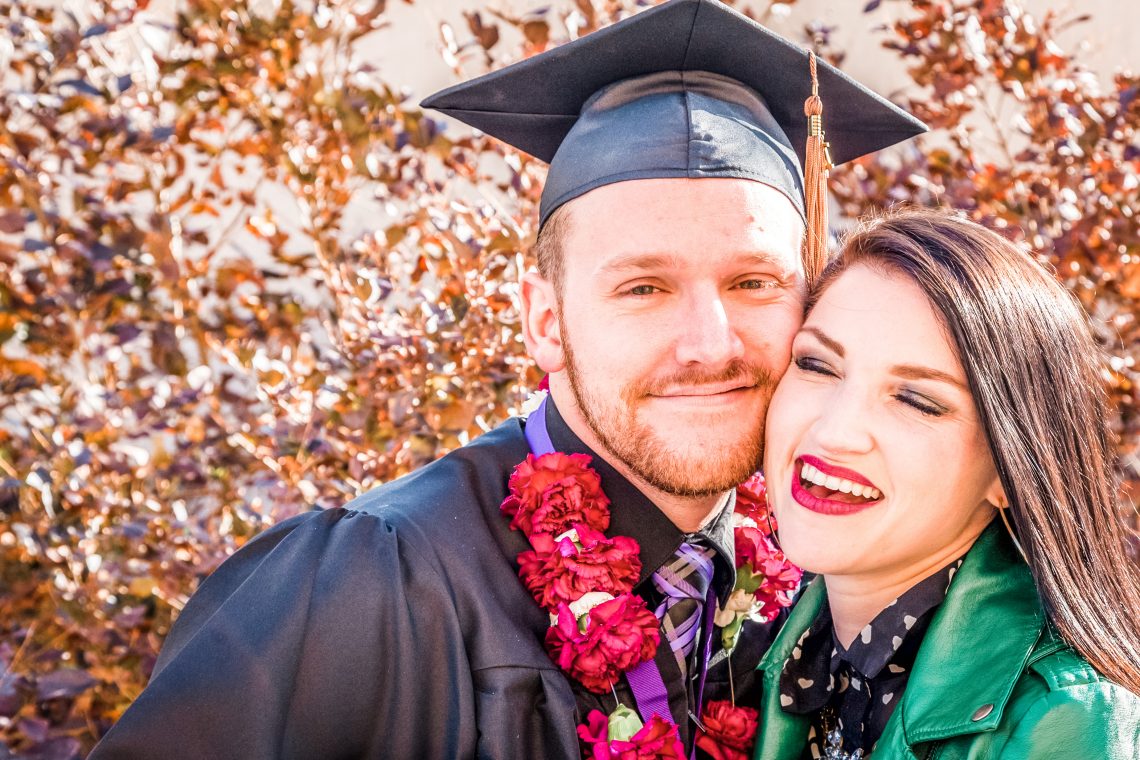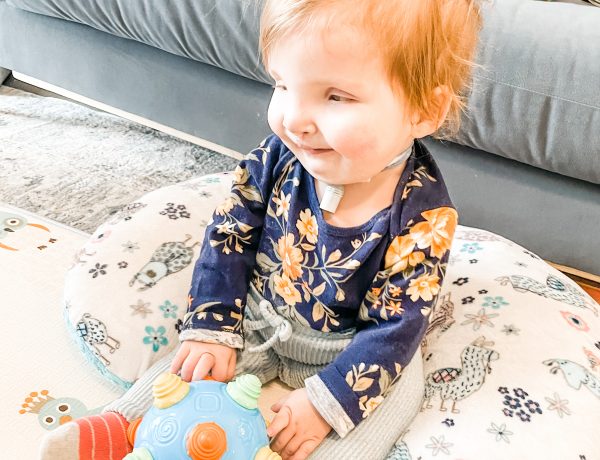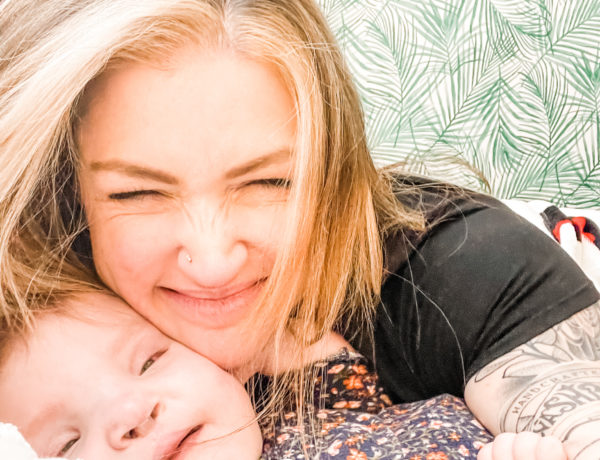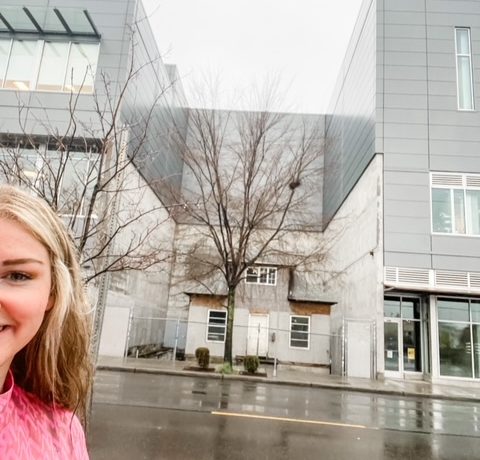As I’ve gone in to full-on-open book mode and have been sharing some of our personal experiences, one of the topics that has been resonating with others (to my surprise) is navigating tough relationships and boundaries with family. I know it’s a taboo, lonely topic for many and we don’t often share real-life scenarios where boundaries exist within family walls. I absolutely get why: families can be complicated and messy. And keeping the peace typically tends to outweigh anything and everything. Even when the relationship(s) are harmful.
This is also a topic where I privately, confidentially receive messages from those who are struggling in dark and lonely spaces with nobody to turn to. So what I’m about to share is for them.
If you are in the lonely throes of navigating harmful relationships, there are so many others like you. And by way of honoring Aaron, I want to help you feel less alone.
You need someone to sit with and support you, too.
If by sharing our story I’m able to save one person, or connect with one human in their darkest place, I’ve done my job today.
So…Are you one of these dark and lonely space-sitters? Navigating harmful relationships? Potentially with family? If so, I want you to know you’re not alone: but it can be an unbelievably lonely experience.
To Those Who Don’t Get It
This is a topic that people in truly loving, respectful, connected, supportive families can’t begin to comprehend. It’s easy to avoid the realities of abusive, toxic relationships when they don’t affect you firsthand. This helps us in supportive, deeply connected families preserve our own sense of comfort and peace while avoiding the cognitive dissonance that comes with the idea that things, and relationships, aren’t always as they seem.
If you can avoid them: ugly topics are best swept under a rug. Sometimes we do it for our own comfort and self-preservation, or to (unknowingly) help preserve the image of picture-perfect families who enable generations of private, cyclical abuse and pain.
Avoidance reinforces our perspective. We don’t have to think too hard if we just avoid the tough stuff and self-select the good.
The crappy part about avoiding or dismissing stories of abuse and pain, or enabling this perpetual cycle, is that avoidance only serves to increase the pain of those suffering alone. And, in many cases, this deep level of secrecy and pain allows hurt and abuse to quietly move forward through generations.
Hurt people hurt people. This creates victims. And it can be life-threatening.
Or life-ending.
I don’t claim to be an expert on this stuff. …Or, tbh, an expert on anything ever. Ha! But I guess you could say I have had real-life experience in those same dark, lonely spaces as Aaron navigated family relationships that caused him harm for so long. When we were first married I wanted so badly to find peace for everyone and be the best possible Kari I could be at the literal age of 19 (lol @ young marriage), but I quickly realized (thanks to my mom) I needed to focus on helping Aaron find his peace first.
And, in the end, I always chose Aaron. Sitting with him in those dark, lonely spaces until the day he died.
Setting boundaries with Aaron’s family hurt. It was an extremely lonely experience for both me and Aaron. Very few people from his past ever believed or validated him in his pain and experience. And now, after his death, many people near that circle of his life have spun up their own versions of what happened with Aaron without facing the realities of their behavior, or his truth, head-on.
If you’ve read prior blog posts: you know Aaron worked hard to set boundaries with family for many years. And I’m continuing to honor that: but it means I now sit in those same dark, lonely spaces without my goofball of a partner in the dark.
And that sucks.
I’ve shared tips on what boundaries looked like for us and how we managed them, but boundaries can look different for everyone. And family can truly be the most difficult of relationships to find a solid boundary-setting-flow.
Our dark, lonely space: a piece of Aaron’s truth.
In the weeks leading up to Aaron’s death: he was struggling. He obviously never told me that he was in the middle of planning his own death: but I still knew he wasn’t doing well. I hustled to get him access to all of the resources and treatment we could find and it seemed – to me and his therapist – to help him tremendously. His therapist even marked him as “greatly improving!”
Damn it, Aaron.
And although I didn’t know the extent, I could still see his pain every day. During almost every morning coffee drive, he would break down. He would share how his biggest fear was becoming people that had hurt him – or others – at some point in his childhood. I would comfort him and tell him I saw him in a different light, but it never seemed to connect with him like it did in previous years.
Something was a bit different this time. And Aaron never truly opened up to me, until his final day, about what made things so different.
Aaron was in a dark, lonely space: terrified that boundaries simply weren’t enough to separate him from his own shame, mistakes, fears, family, and upbringing. He felt he could never grow beyond his past – no matter how hard he wanted to or tried. And if he tried, he was pegged as “too sensitive” or “easily offended.”
When your bff dies suddenly like Aaron did, you’re in complete shock. I was just…out of body. Floating in an ethereal, weird, dark, lonely, misunderstood space I’ll never be able to describe. I was completely (irrationally) attempting to survive because I was sure my heart was about to stop.
There is no rhyme or reason to any of my behavior when Aaron died: and I hate thinking about it. I was just trying to make everyone (even the people who hurt Aaron) happy, stay kind, and survive. But now, I wish I would have had the mental capacity to choose the difficult stuff over kindness.
I wish I would have stuck up for Aaron in the most intense way.
I try to give myself grace, but it still hurts to think I never just spoke his truth when I had the chance.
In the weeks following Aaron’s death, an odd type of performative grief became very apparent from those who hurt him. The desire to sweep Aaron’s death, the letter he left behind regarding his pain, and a need for self-validation stood out like a sore thumb. I would watch this performance and self-spun narrative play out by those who hurt him, while having access to Aaron’s phone and knowing the actual conversations and pain that existed behind the scenes.
Some of the last words these same individuals publicly proclaiming grief and love for Aaron actually said to the real human Aaron were extremely harmful. And if you go beyond the “last words” – the hateful, abusive, unsolicited messages and behaviors stack up in a big way.
But…And bear with me here: I get their behavior in the most morbid, dark way too. We’re all scrambling. It doesn’t mean I’m not hurt or angry on mine and Aaron’s behalf. But I do know that truly understanding and facing Aaron’s pain would be too difficult for those who enabled or perpetuated abusive, harmful relationship dynamics in the first place. They were scrambling for normalcy, survival, and self-preservation in their own way: and if they faced their past behaviors and conversations with Aaron head-on, it would be way too dark and heavy.
It’s much easier to remember and memorialize a seemingly happy, helpless, quiet 15-year-old Aaron than it is to remember the 30-year-old Aaron who set boundaries and chose to grow beyond these relationships.
I hate that for Aaron. But I get it for them.
Keeping all of this behavior in mind, when it came to Aaron – he saw himself as being unable to see a future in which Sloan and I would be protected from this past that haunted him. He felt the past continued to shape his actions and how he viewed himself.
After Aaron’s death: I looked back through his phone and it only solidified everything. I have learned even more about what he actually felt. After shame from his own actions and childhood trauma – he began having nightmares of the abuse, nightmares that Sloan and I weren’t safe, and nightmares that he couldn’t grow or be better than the narrative once spinning around him.
These nightmares spun into a form of mania, hallucinations, and intense mental illness.
He was living two lives: a pretty happy, chill life during the day with me and Sloan. And a life full of nightmares and hallucinations at night while Sloan and I were asleep.
Aaron began to think he had done things he actually didn’t ever do. He began to think he was people who hurt him.
This nightmare life was too much for him and he snapped.
That was the final straw.
It’s sad and it sucks.
Connection through the complexity of it all
I share this deeply personal aspect of Aaron’s experience to do one thing: connect with others.
If you find yourself facing this same kind of hurt, if this small piece of Aaron’s experience resonates with you in any way, or if you find yourself thinking you’re becoming someone you fear or despise: I don’t care what you have said or done...Even if it is out of character or absolutely messed-up.
You are not the people you fear you are.
You are not the thoughts, actions, and mistakes of those who haunt you.
You deserve love, respect, and support.
You deserve a future. And that future will encapsulate everything from the dark to the bright side.
You should be there to live it all.
So…Have you made mistakes?
Yep. We all do.
Do you have some version of shame you’re working through?
Probably. Shame is a thing that exists.
Are you invalidated by others as you share your story and receive middle-ground responses? Hearing things like: “I never saw that” or “you’re too sensitive” or “we all experience stuff like this”?
If so, that doesn’t fall on you. You can’t change the reactions of others. They’re scrambling for their own form of normalcy and understanding too. This really is dark stuff: for them and you. It’s up to you to find a way to move forward that allows you to live your own fulfilling, loving, meaningful life. But that takes work – and it sucks. I’m sorry. There’s no way around it.
…So, I realize I don’t know you: I just knew Aaron. And guess what? Aaron made mistakes, screwed up, had the most annoying habits (like eating cheese puffs in the most cringey way while playing his tamagotchi literally the day before he died) and was very much human.
He was also extremely empathetic, kind, soft-hearted, loving, and the most unbelievably dedicated, involved dad to Sloan and major bff, confidant, and cheerleader to me.
We loved each other with all of our heart while also driving each other nuts with every fiber of our being.
You’ll never find me over-romanticizing Aaron, because he’d cringe. I’ve seen his legacy (along with my mom) romanticized by others: and that’s fine. But not for me. I like to remember Aaron eating cheese puffs and mom eating mints: because it reminds me they were once here. They were human.
But as I remember the funny stuff: you’ll also find me crying myself to sleep almost every night as my life will never be the same.
Because without Aaron I carry an enormous, vacant, empty chasm 24/7. And no matter what comes next for me, I know that piece of my life will stay empty until I die too.
Aaron was deserving of his future: whatever that looked like.
And you are also deserving of your future, too.
Both bright and dark: you have a future ahead
So if you find yourself alone in this moment while navigating treacherous waters with family or relationships of any kind…Or maybe your inner-child is hurting like Aaron’s was…
You’re not alone.
You’re not too sensitive.
You’re not the people you fear.
You don’t need to keep secrets on behalf of anyone, ever. Share these secrets with professionals in safe spaces and go from there.
Nothing is unsolvable.
You’re not unlovable.
You’re still have glow-ups ahead: emotionally, spiritually, and physically.
You are simply you. And nobody can take away your growth.
And, god damn it, the world needs that you-iest version of you. Mistakes, flaws, fears, messed-up past, mundanity, glimpses of joy, love for those who love you back, and all.
Cliché AF: you’re not alone in your experience
If you resonate with anything in this long-ass post: please remember, your experience is valid and you can seek help. Don’t listen to the naysayers or your feelings/experience-deniers.
If you are in a dark, lonely space: tell someone you know. Or tell a professional.
You don’t have to sit in dark, lonely spaces alone.
But also remember: while so many want to help you, there are things only professionals can truly face with you. Simply telling a friend might not cut it.
I know many experiences aren’t as simple as calling the suicide hotline or remembering “you’re not alone” because mental illness, depression, and trauma can be so much more than that. The default response of the hotline or not-alone-ness can be a well-intentioned suggestion from the minds of those who don’t truly understand your pain. Intentions don’t always impact change.
I get it. I know.
So if you are in the darkest and thickest of it (or might be): seek out a professional. This includes things like hallucinations, true PTSD, abusive relationships, suicidal planning – especially the secretive stuff, etc.
If you’re questioning whether things are severe enough, then let’s fall on the safe side and say they are.
Get in contact with a professional.
Now.
Aaron was in the camp of needing very intense, full-time professional help to step out of these nightmares, hallucinations, and fears. He never opened up to his therapist about the darkest of dark.
And I sure as hell wish he did.
I promise there are people who feel the same about you.
You are loved. The world wants you here. Even when life is too heavy to carry, the darkness seems unsolvable, nobody seems to be listening, or there is a huge possibly-path-ending bump in the road ahead: you deserve to carry forward.
You’re not alone in the darkest, loneliest spaces.
There are many sitting with you in their own dark, lonely space right now too.
You’re just not connected to them…yet.
<3 – Kari



